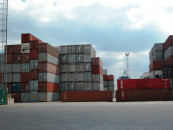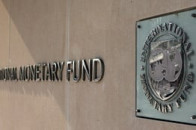Govt intervention boon for farmers, but consumers suffer
The government's attempt to offer better returns to farmers often results in higher prices for consumers.

Govt intervention boon for farmers, but consumers suffer
Government intervention in the wheat market decreased during the period between 2002 and 2008 leading to both consumers and flour producers paying less. Thus, to some extent harmony prevailed between consumers and producers. But this year the government remained engaged in the market offering Rs950 per 40 kilogrammes to the growers, both consumers and producers paid high prices for the commodity.
Farmers produced 21 million tons in 2007-08 when the procurement price of wheat was Rs425 per 40 kg. After an increase in support price to Rs950 in 2008-09, production grew to 24.03 million tons, creating significant surplus and routing billions of rupees into the rural economy. However, the high wheat prices locally, far above those in the international market, proved to be costly for the cash-strapped government.
To provide relief, the Economic Coordination Committee (ECC) of the cabinet established a guaranteed minimum price for wheat which was to remain unchanged; this was Rs950 per 40 kg in financial year 2009-10.
But last week the ECC was forced to deny the Punjab government permission to export two million tons of wheat. If crop procured at government imposed rates is exported than a loss of Rs1.7 billion is anticipated.
Officials have estimated a bumper crop of 24 million tons sown over 9.404 million hectares this season. This year, the government has set the wheat procurement target at 7.5 million tons against the initial target of 6.5 million tons last year based on the fact that 9.23 million tons were actually procured.
The Farmers Association of Pakistan has rejected the wheat procurement policy, claiming it is against the interest of growers. The Pakistan Flour Mills Association has proposed that the government export flour instead of wheat as the price of Pakistani wheat is higher than the international rate. Some experts say that Pakistani wheat is the most expensive in the word. The price of wheat in the international market is $180-220 per ton (Rs612-Rs640 per 40 kg) while in the domestic market the rate is about $280-300 per ton (Rs950-1,050 per 40 kg). With this argument, it seems ridiculous to buy costly wheat at home when the same is available at cheap prices abroad! Chairman Pakistan Flour Mills Association Punjab Zone, Liaquat Ali Khan, said wheat exporting countries are supplying the commodity in the range of $160 to $200 per ton in the international market. In comparison, prices of Pakistani wheat range between $300 and $350 per ton inclusive of transport expenses. Khan was of the view that flour mills can earn billions of rupees if the government agreed to provide a $50-60 rebate on per ton of flour.
However, the government seems to have a policy of pleasing landlords, who are both in the treasury and in the friendly opposition in the National Assembly and Senate, by providing an opportunity to earn huge profits.
According to experts, the government has lost all gains relating to poverty over the last two years due to higher wheat prices. They suggested that the government should have taken into consideration the future wheat price trends in the domestic as well as international market before announcing the wheat support price.
World Food Programme chief for Pakistan, Wolfgang Harbinger, has also said that the government should keep the expected price of commodity at the regional level in mind while formulating wheat support price policy.
Published in The Express Tribune, July 5th, 2010.



















COMMENTS
Comments are moderated and generally will be posted if they are on-topic and not abusive.
For more information, please see our Comments FAQ